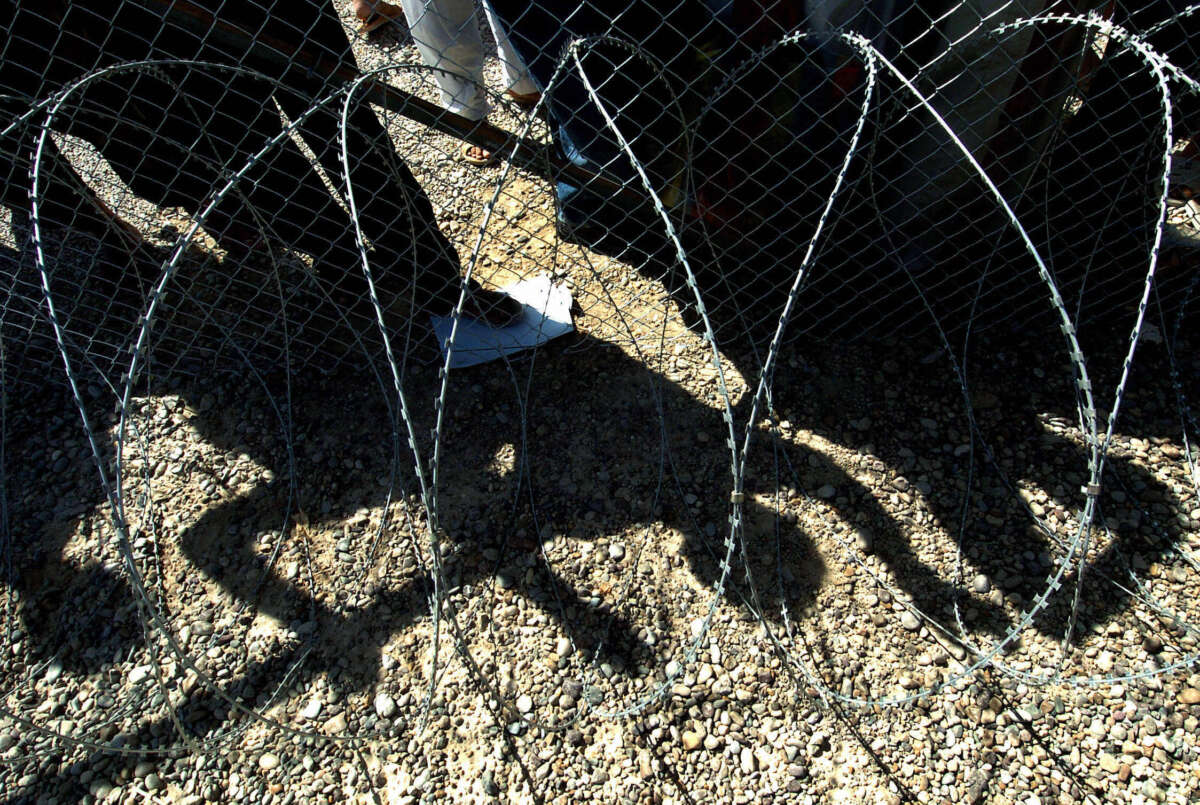A Virginia-based defense contractor has been ordered to pay $42 million to three torture victims held at Abu Ghraib prison during the early years of the U.S. occupation of Iraq.
CACI International, the company in question, wasn’t directly responsible for the torture that the men endured. However, within the lawsuit, the three men — Iraqi citizens Suhail Al Shimari, a high school principal; Asa’ad Al-Zubae, a fruit vendor; and journalist Salah Al-Ejaili — argued that CACI was complicit in the violence against them because interrogators from the company had conspired with military police to “soften up” the detainees, effectively making their torture more likely to happen.
The eight-member jury in the civil lawsuit agreed, finding CACI partially liable for the harm done to the three men, and awarding each of them a $3 million compensatory judgment and $11 million in punitive damages.
The inhumane and degrading torture that took place at Abu Ghraib in 2003 and 2004 made headlines around the world, and has become one of the most symbolic legacies of the U.S. occupation of Iraq. . Military police subjected Iraqis at the prison to severe beatings, forced them to be nude in compromising positions, sexually abused them, and carried out other cruel actions, including photographing them as they were being tortured — photographs that were eventually published, leading to international outcry. At least one detainee also died as a result of their treatment.
The three men in the lawsuit said they were subjected to those same kinds of torture, although none of them were photographed by military staff.
The verdict came after several years of legal maneuvering by CACI, ever since the three men first filed the suit in 2008. CACI maintained that, due to its role as a government contractor, the real liability belonged to the U.S. government directing the company. Even after the jury reached its decision this week, CACI released a statement continuing to deny any liability, with the company alleging it “has been wrongly subjected to long-term, negative affiliation with the unfortunate and reckless actions of a group of military police at Abu Ghraib.”
Lawyers representing the three men described the outcome differently, with Baher Azmy, the legal director for the Center for Constitutional Rights, calling the result “an important measure of justice and accountability.
“After 21 years, justice has been served for our clients. The jury heard their pain loud and clear,” said Shereef Akeel, another lawyer representing the three men.
“With today’s verdict, private military and security contractors are put on notice that they can and will be held accountable when they breach the most fundamental international law protections – like the prohibition against torture – and fail to comply with their contractual and regulatory obligations to ensure their employees follow the law,” said Center for Constitutional Rights Senior Staff attorney Katherine Gallagher.
Al-Ejaili also submitted a written statement heralding the decision.
“Today is a big day for me and for justice. I’ve waited a long time for this day,” Al-Ejaili said. “This victory isn’t only for the three plaintiffs in this case against a corporation. This victory is a shining light for everyone who has been oppressed and a strong warning to any company or contractor practicing different forms of torture and abuse.”
Journalist Simona Foltyn also called the ruling by the jury an important decision, but suggested more parties had to be held to account for what had happened at Abu Ghraib — specifically, the U.S. government.
The decision is an “important measure of justice,” Foltyn wrote on X, “but [it] raises questions about why the U.S. army, which oversaw the facilities, is not held accountable too.”
Media that fights fascism
Truthout is funded almost entirely by readers — that’s why we can speak truth to power and cut against the mainstream narrative. But independent journalists at Truthout face mounting political repression under Trump.
We rely on your support to survive McCarthyist censorship. Please make a tax-deductible one-time or monthly donation.
